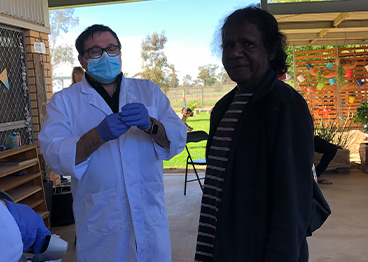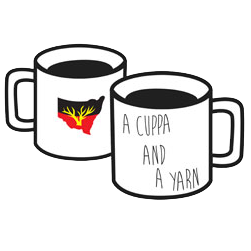
28 April, 2020
Sorry Business.
It’s one of the most important times in Aboriginal communities, where family and community say their farewells and ensure a person’s body and spirit is properly put to rest.
Sorry Business is a period of grief and mourning that involves cultural responsibilities and obligations to attend funerals and other ceremonies, no matter how far we have to travel.
And as we know, Aboriginal funerals are always well attended. In fact, churches fill inside and out, small towns’ populations expand, and hotels and motels book out as family and friends travel for hundreds of kilometres to pay their respects.
The crisis brought by the Coronavirus and subsequent rules limiting funerals to a maximum of ten people, means that Sorry Business has had to change.
It’s a change that adds another layer of sorrow to the saddest of times.
That grief is all too obvious in small communities as gatherings, cultural dance and the funeral itself can’t include extended family and friends from within the community and further afield.
Alfred Wellington is the CEO of the Jerrinja Local Aboriginal Land Council, part of the Jerrinja Aboriginal Community at Orient Point, on the NSW South Coast.
He says the ten-person limit, while understandable, is a bitter pill.
“That’s such an alien concept for us. How do you explain to our people that they can’t say goodbye to family? It’s difficult, so difficult.”
And with funerals already scheduled before restrictions on public gatherings were enacted by the Federal Government, families and communities had to scramble for alternatives.
The Aboriginal community of Bathurst in central western NSW had four funerals organised just before the new rules came into effect.
“The restrictions have had a huge impact on our community,” said Tonilee Scott, CEO of the Bathurst Local Aboriginal Land Council.
“Families were very limited over deciding who could be at the service. It’s been just devastating for them.”
Alfred Wellington agrees, saying that restrictions on numbers and travel have changed the traditional community element of Sorry Business.
“We do this together. We all mourn together. It’s what our ancestors did, and what we continue to do. A chance to catch up with mob. Now that’s changed.”
And with change comes adaptation, at least until the time when life resumes some normality.
Social media now mixes with ancient traditions as families turn to the internet to help their extended family and community members participate from afar.
“One family just had immediate family attend the funeral and streamed the service privately on social media. It wasn’t ideal of course, but it made a difference to everyone,” Tonilee said.
Other options also include video messages recorded on smartphones being played onscreen at the funeral itself, and live remote participation using apps like Facetime, Zoom and Skype.
Tonilee says despite the virtual possibilities, her community is adamant they’ll never replace the real thing.
“We’ve come to a compromise that after the Coronavirus situation has settled down and the rules have been lifted, we’ll hold memorial services within our community. People want to attend in person, pay their respects and reflect on their loved one’s lifetime and their friendship.”
Alfred Wellington says when grief mixes with the longing for a hug from an Aunty, he remembers times past to help him find some peace with the present.
“Our ancestors were masters at adjusting to changes in life and society. They went through invasion, droughts, changes in landscapes, fires, the whole lot. That’s a key thing we can draw on now. Think about our ancestors and how adaptable they were. We can do the same,” he said.
A video or a live stream on social media can never replace a hug, shared tears and the smell of a traditional smoking ceremony, but it’s helping to keep our communities connected when a virus keeps us apart.

